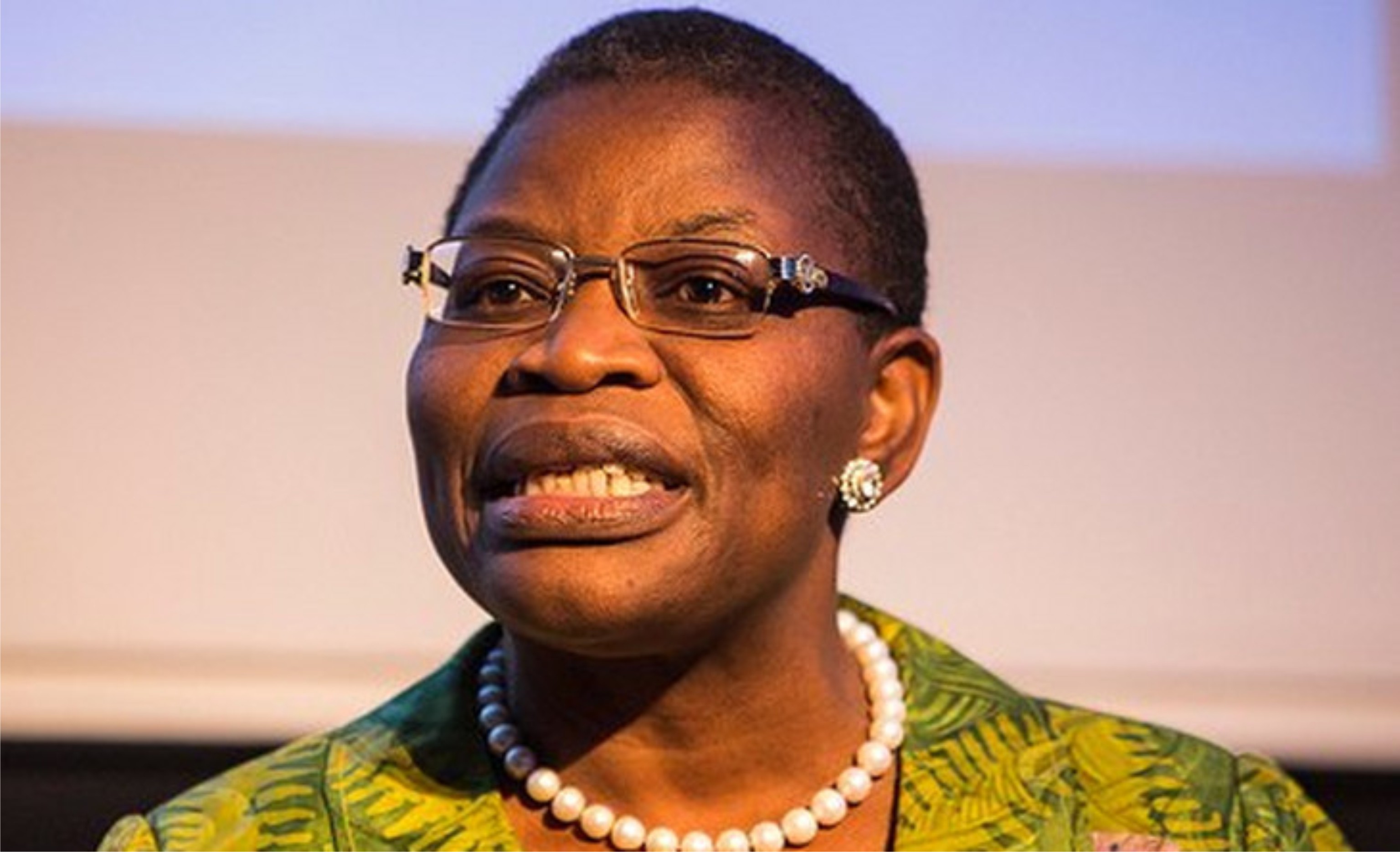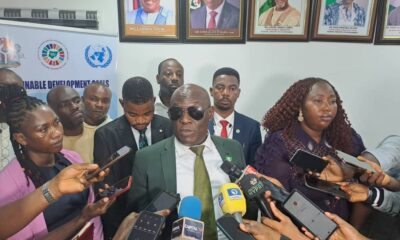Business
Five Multinationals Exit Nigeria In 10 Months
An analysis of separate notices filed by five multinational firms has shown that the five multinationals have winded down operations in Nigeria in the last 10 months.
On Wednesday, Consumer goods giant, Procter & Gambles, disclosed that it would dissolve on-ground operations in the country.
Chief Financial Officer of the group, Andre Schulten, stated this during his presentation at the Morgan Stanley Global Consumer and Retail Conference.
The company said it was difficult to do business in Nigeria as a dollar-denominated organisation and the macro-economic reality in Nigeria is responsible for its latest strategic decision.
Schulten said, “The other reality that arises in some of these markets is that it gets increasingly difficult to operate and create U.S dollar value.
“So, when you think about places like Nigeria and Argentina, it is difficult for us to operate because of the macro-economic environment.
“So, with that in mind, we are announcing a restructuring programme with the intent to adjust the operating model and adjust the portfolio to ensure that we maintain the portfolio discipline that has brought us to this point.
“The restructuring programme will largely focus on Nigeria and Argentina. We’ve announced that we will turn Nigeria into an import-only market, effectively dissolving our footprint on the ground in Nigeria and reverting to an import-only model”.
The company joins a growing list of multinationals set to exit Nigeria in 2023, following the footsteps of Unilever, which is the first Multinational to announce that it would fold up operations in Nigeria in 2023.
In March, the company had said changes in its business meant it had to exit its home care and skin cleansing categories from Nigeria.
The announcement meant that famous brands such as Omo, Sunlight and Lux, which many Nigerians had become accustomed to, would no longer be on retail shelves.
The company’s decision to end production in Nigeria is connected to increased financial difficulties occasioned by the continued devaluation of the naira, among others.
President of the Manufacturers Association of Nigeria (MAN), Francis Meshioye, told The Tide’s source that some international manufacturing firms had already exited Nigeria as a result of the power crisis, coupled with the unpredictability of the country’s foreign exchange rate before it was recently unified.
He said the N144bn spent on alternative energy sources by manufacturers in 2022 impacted adversely on the operations of his members.
In July, barely a month after Meshioye’s warning, GlaxoSmithKline Consumer Nigeria Plc, the country’s second-biggest drug producer, announced it was halting manufacturing operations in Nigeria.
According to a statement published on the Nigeria Exchange, GSK Plc (Headquartered in the UK), which owns a majority stake in the Nigerian unit, said it will appoint third-party distributors to sell its prescription medicines and vaccines in the country.
GSK’s consumer-health arm, Haleon Plc, also informed GSK Nigeria of its “intent to terminate its distribution agreement in the coming months” and appoint a third-party distributor.
GSK also said it planned “an accelerated cash distribution and return of capital” to minority shareholders.
No reason was given for the company’s exit, though the company had in the past raised concerns about the scarcity of forex which made it difficult to maintain supplies of its pharmaceutical and vaccine products in Nigeria.
Last month, Sanofi, a French pharmaceutical multinational, announced its exit from Nigeria.
The company said it had appointed a third-party distributor to handle its commercial portfolio of medicines from February 2024.
While the company’s Country Manager, Folake Odediran, had described the decision as a strategic move driven by the company’s commitment to continually improve access to medicines, the company’s financials indicated that operating in Nigeria had been a tall order.
Shortly after Sanofi’s announcement, Bolt Food announced that it had made the difficult decision to discontinue its food delivery operations in Nigeria due to business reasons.
According to a statement by the company, the decision was borne out of the need to “streamline its resources and maximise overall efficiency”.
Business
Over $1.5bn Spent To Protect Nigeria’s Oil Installations -FG

The Federal Government has said it has spent over $1.5 billion from 2020 to date to protect the nation’s oil installations and curb crude oil theft.
The Secretary to the Government of the Federation (SGF), George Akume, made this known, yesterday, at a public hearing of the House of Representatives on crude oil theft.
Akume was represented by the Permanent Secretary, General Services, Maurice Nandi.
The Federal Government was concerned about the report from the Nigerian Extractive Industries Transparency Initiative (NEITI), which pointed to over $46 billion worth of stolen crude between 2009 and 2020.
“The House had set up a special committee, headed by the Chairman of the House Committee on Petroleum Upstream, Ado Doguwa, to investigate the losses in the oil and gas sector,” Akume said.
Additionally, Speaker of the House Tajudeen Abbas, represented by Deputy Speaker Benjamin Kalu, said $10 billion has been lost in seven months to crude oil theft.
Business
FG Unveils Metering Project Teams To Combat Oil Theft

The Nigerian Upstream Petroleum Regulatory Commission (NUPRC) has inaugurated Metering Audit and Advance Cargo Declaration project teams, to promote transparency and accountability in the upstream oil and gas.
The Commission’s Chief Executive, Mr Gbenga Komolafe, who spoke at the inauguration of the project teams, on Wednesday in Abuja, said the projects were designed to combat crude oil theft and boost revenue.
It will be recalled that the Federal Executive Council (FEC) had approved a 21 million dollars contract to audit metering and measurement equipment in the 187 oil flow stations in the country and also put in place an advance cargo declaration solution.
These initiatives as earlier announced by Minister of State for Petroleum Resources Sen. Heineken Lokpobiri, aims at enhancing monitoring and accountability in crude oil production and distribution, addressing rampant oil theft.
Komolafe, while inaugurating the project monitoring teams, announced a four-month deadline for the completion of the projects.
According to him, the initiatives zre in line with NUPRC’s mandate to ensure optimal government revenues from upstream petroleum operations, as specified in the Petroleum Industry Act (PIA) 2021.
He said the projects would be executed by PE Energy Limited and P-Lyne Energy.
“Audit of Upstream Measurement Equipment and Facilities project aims to establish reliable baseline data for all measurement points, identify gaps in production and allocation measurement, and implement targeted interventions to enhance metering infrastructure.
“This project is crucial in addressing issues such as the presence of obsolete equipment, lack of a comprehensive database and absence of real-time production measurement across many locations.
“Advance Cargo Declaration Solution complements the metering audit by establishing a robust system for declaring and tracking crude oil transportation and exports from Nigeria,” he said.
He said the project would monitor and account for the movement of crude oil within the country, prevent disruptions, theft, and under-declaration, and ensure that only certified products were being exported.
“It will also enable real-time tracking, reconciliation, and reporting of crude oil exports to facilitate accurate revenue billing and generation.
“For a long time as a nation we have suffered from the menace of crude oil theft and there have been contentions on the accuracy in terms of our hydrocarbon accounting in Nigeria in a manner that has impacted our federal revenue unfavourably.
“So what has happened is that the commission, within its assumption of office, has been able, as a regulator, to take a very bold measure to address this issue.
“We have 31 crude oil loading terminals. So we are trying to ensure that we put in place a framework where the nation will be able to accurately determine and measure the volume of crude that is loaded from these terminals,” he said.
He tasked the teams, comprising experts from various NUPRC’s departments, to discharge their duties professionally, adding that the projects would be delivered within four months, while any request for timeline extension would not be entertained.
The NURPC boss said that each project had a dedicated team, led by Mr Enorense Amadasu, Executive Commissioner for Development and Production, NURPC, with strict timelines for completion.
While commending President Bola Tinubu for his support, Komolafe urged stakeholders to cooperate with the teams to facilitate successful implementation of the projects.
“Team for Audit of Upstream Measurement Equipment and Facilities in the Nigerian Oil and Gas Industry” project comprise ; Manuel Ibituroko – Deputy Director, Facilities Engineering & Optimisation; Mohammed Sirajo – Manager, Facilities Engineering; Ike Chidi – Manager, Facilities Engineering; and Bashir Shariff – Principal Regulatory Officer.
“Team for Advance Cargo Declaration Solution” project, comprise: Bello Shehu – Assistant Director, Crude Oil & Gas terminal Operations; Abdulrahman Idris – Manager, Petroleum Accounting; Omeje Desmond – Deputy Manager, COTO PHC; Dimkpa I. H. – PRO, COTO Warri and Olatunji Babatunde – NDR”.
He said the teams would liaise with the contractors to ensure the fulfilment of the Commission’s specified obligations and monitoring the implementation of the projects to ensure alignment with the scope and specifications.
Responding, one of the two contractors, Chief Executive Officer, PE Energy Ltd, Daere Akobo, thanked the Federal Government for the confidence repose in them to take a pragmatic look at hydrocarbon accounting.
Also, the Director, P-Lyne Energy, Tomi Ogunwole assured that the company would abide by the four-month deadline set by the commission.
Business
FG Launches Blueprint For Africa’s Digital Trade
The Federal Government of Nigeria has launched a comprehensive strategy to spearhead Africa’s digital trade revolution, aligning with the African Continental Free Trade Agreement (AfCFTA) framework.
The initiative, a key component of President Bola Tinubu’s Renewed Hope Agenda, is aimed at leveraging trade as a driver of economic growth and continental unity in accordance with AfCFTA’s objectives.
According to Vice President Kashim Shettima, in his X handle (formerly twitter), “Nigeria is in a unique position to spearhead the continent’s technological transformation”.
He said the strategy includes implementing AfCFTA’s Digital Trade Protocol, developing technical talent hubs, enhancing digital infrastructure investments, and promoting innovation and entrepreneurship.
Shettima stated this while delivering a keynote address during a stakeholders’ summit with the theme, “Digital Trade in Africa: The Renewed Hope Strategy”, at the Presidential Villa, Abuja.
The Vice President emphasised the need for public-private sector synergy and assured continued government investment in digital infrastructure and human capital development.
On his part, the Minister of Communications, Innovation, and Digital Economy, Bosun Tijjani, highlighted the Tinubu administration’s substantial investments in all aspects of the digital trade protocol, aiming at harnessing opportunities both in Nigeria and across the continent.
He stated that innovative policies and programmes, such as the Three Million Technical Talent programme, the data protection policy, and increased investments in digital infrastructure, were equipping Nigeria’s young population for current and future opportunities.
Tijjani stressed the critical role of technology in facilitating trade across Africa, noting that the unprecedented opportunities within the single market area could be best leveraged through effective collaboration and networking enabled by digital technology.
-
News3 days ago
We’ll Renew Hope Of Widows, Widowers With Inclusive Policies – Fubara
-
Sports3 days ago
FG Lauds Diri’s Commitment To Sports Dev
-

 News1 day ago
News1 day agoFG Panics As #EndBadGovernance Protest Begins, Aug 1 …Yoruba Youths, Ezekwesili Call For Caution
-
Nation1 day ago
‘FG lnjects Palliatives Worth N1trn Into Manufacturing Sector’
-

 Nation3 days ago
Nation3 days agoHYPREP Project Coordinator Assures Ogoni Youths Of Sustainable Clean-Up
-
Rivers3 days ago
UNICEF Backs South-South States On Budgetary Allocations For Children
-
Business3 days ago
FG Launches Blueprint For Africa’s Digital Trade
-
Sports1 day ago
France’s Olympics Come Alive With Les Bleus Victory

